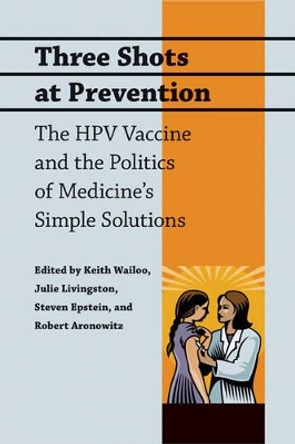In the course of the 20th century, cancer went from being perceived as a white woman's nemesis to a "democratic disease" to a fearsome threat in communities of color. Drawing on film and fiction, on medical and epidemiological evidence, and on patients' accounts, Keith Wailoo tracks this transformation in cancer awareness, revealing how not only awareness, but cancer prevention, treatment, and survival have all been refracted through the lens of race. Spanning more than a century, the book offers a sweeping account of the forces that simultaneously defined cancer as an intensely individualized and personal experience linked to whites, often categorizing people across the color line as racial types lacking similar personal dimensions. Wailoo describes how theories of risk evolved with changes in women's roles, with African-American and new immigrant migration trends, with the growth of federal cancer surveillance, and with diagnostic advances, racial protest, and contemporary health activism. The book examines such powerful and transformative social developments as the mass black migration from rural south to urban north in the 1920s and 1930s, the World War II experience at home and on the war front, and the quest for civil rights and equality in health in the 1950s and '60s. It also explores recent controversies that illuminate the diversity of cancer challenges in America, such as the high cancer rates among privileged women in Marin County, California, the heavy toll of prostate cancer among black men, and the questions about why Vietnamese-American women's cervical cancer rates are so high. A pioneering study, How Cancer Crossed the Color Line gracefully documents how race and gender became central motifs in the birth of cancer awareness, how patterns and perceptions changed over time, and how the "war on cancer" continues to be waged along the color line.
About the AuthorKeith Wailoo is Townsend Martin Professor of History and Public Affairs at Princeton University. He is author of the award-winning book, Dying in the City of the Blues: Sickle Cell Anemia and the Politics of Race and Health.
ReviewsSpanning more than a century, the book offers account of the forces that silmultaneously defined cancer as an intensely individualized and personal experience linked to whites, often categorizing people across the color line as racial types lacking similar personal dimensions. The book examines such powerful and transformative social developments as the mass black migration from rural south to urban north in the 1920s and 1930s, the World War II experience at home and on the war front, and the quest for civil rights and equality in the health in the 1950s and '60s. It also explores recent controversies that illuminate that diversity of cancer challenges in America.
Wailoo's finely honed narrative is a riveting read. ... How Cancer Crossed the Color Line is vital for anyone trying to grapple with cancer and race, past or present, as well as broader issues of narratives of disease and difference in America. * Anne Pollock, Isis *
Book InformationISBN 9780195170177
Author Keith WailooFormat Hardback
Page Count 264
Imprint Oxford University Press IncPublisher Oxford University Press Inc
Weight(grams) 476g
Dimensions(mm) 163mm * 243mm * 24mm










